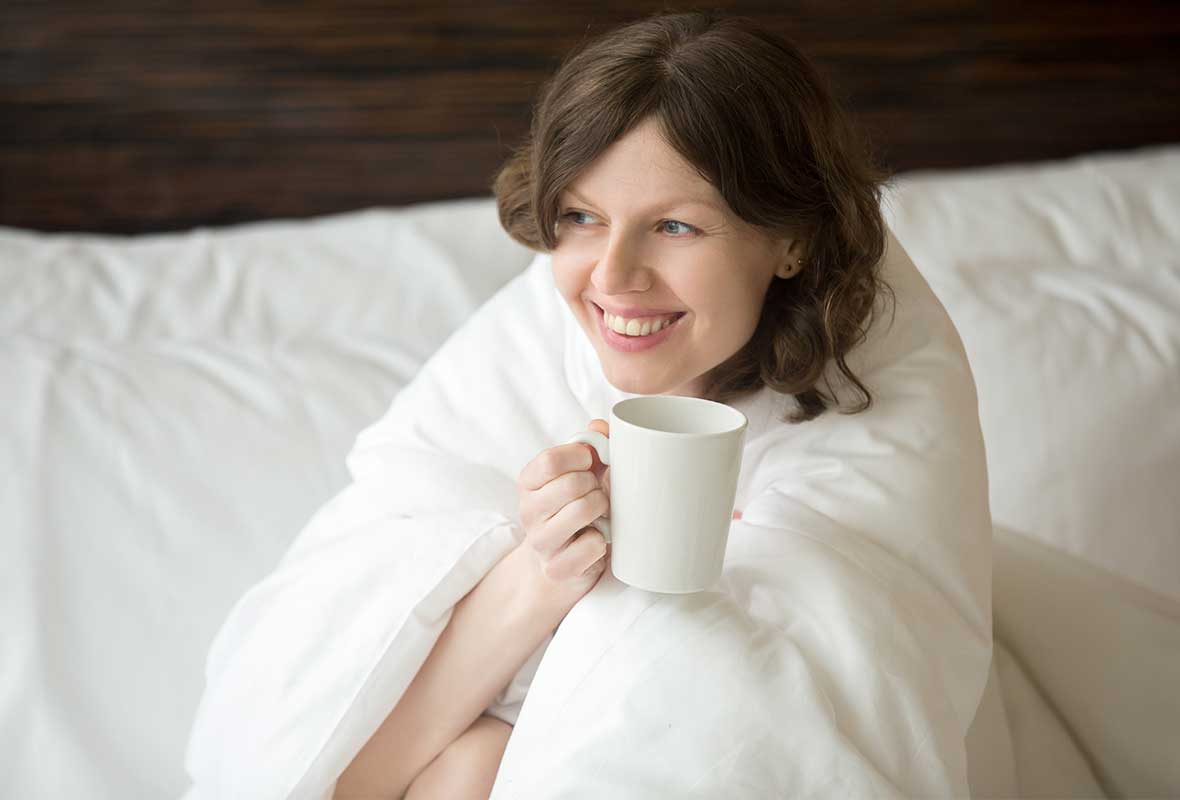Ever wondered why getting out of bed in winter can be so hard? It’s not just the cold your body is adjusting to!
Natural bodily rhythms help let your body know when to fall asleep and wake each day. Our bodies have automatic cue to perform certain activities, and one of the biggest natural bodily rhythms we have is related to our sleeping patterns.
When the sun rises and light starts streaming through the curtains in the morning, our bodies use this as a cue to wake up. Even if we try with all our might to fight the urge and go back to sleep, our circadian rhythms tell us that it is time to get up when the sun is up.
When the sun sets and it gets darker outside, our bodies take this as a cue to wind down and get ready to rest. When it is dark, the inner workings of our bodies begin to shut down in order to recharge. It is not our conscience that is telling us to go to sleep, it is our internal clock.
When winter arrives, the days are shorter and the nights are longer so there is less sunlight. As a result, our circadian rhythms need to adjust. When the sky is darkening earlier in the evening, the body automatically prepares itself for rest, so we become a little more tired than usual. When the sun rises later in the mornings, the body continues to sleep because it senses no light streaming through the curtains.
Just because the sun is rising later in the day, it doesn’t mean we can. Most of us still need to rise at 6am in order to get to work or school on time, so getting up in the mornings during the winter months becomes more challenging. Not only is it much colder but our bodies are not getting that natural cue to wake up.
The science behind our circadian rhythms involves two neurotransmitters called serotonin and melatonin. Melatonin is produced when it is dark and we are asleep. Sleeping too much causes abnormal levels of melatonin. As a result the more we sleep in the winter due to lack of sunlight, the more we want to sleep because of the high levels of melatonin in our bodies.
Serotonin is a hormone that affects the mood. In the summer months when there is plenty of sunlight, our bodies naturally produce more serotonin due to the Vitamin D that is made by our skin cells. When sunlight is in short supply, our serotonin levels automatically fall. This leads to our bodies having less energy and positive feelings.
As a result, we are naturally more tired during the winter months. We long for more sleep because we get less light and serotonin but more of the melatonin hormone.





